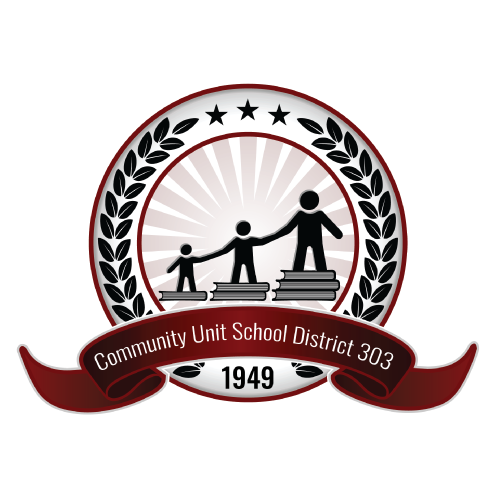Provide students with innovative learning experiences that prepare them for post-secondary careers and higher education.
Having a clear understanding of what we mean by innovative learning is paramount to our efforts of creating and sustaining learning environments and practices that support the knowledge and skills for student and staff success. To help capture the essential elements, there are four key pillars of innovation in District 303:
Personalization of Learning: District 303 believes in tailoring instruction for each student's readiness, strengths, needs, and interests by fostering student voice and choice in what, how, when, and where they learn. Additionally, District 303 utilizes instructional resources supported by technology to more flexibly deliver and enhance the way we personalize learning for students.
Authentic Learning Experiences: District 303 understands that authenticity increases engagement and motivation, which in turn, heightens the level of learning. Providing an approach for learning that intentionally brings real-world, relevant problems and applications, multiple perspectives, ways of working, habits of mind, and community supports this experience for students. As an example, the newly launched INCubator program mirrors more closely what happens with lean startups in the business world. This program has helped transform how students in both our middle and high schools are learning to solve problems and become entrepreneurs. In addition, local business professionals serve as mentors and provide our high school students with internship experiences relating to their field of study, helping connect their learning with post-secondary careers.
Responsive Teaching: District 303 educators continue to learn and grow by increasing their repertoire of instructional techniques and strategies. They combine research-based instructional practices and match it with the particular needs and interests of a group of students at a specific point in their learning. Currently, teachers are using traditional and technology-based assessment tools to measure student understanding and provide immediate feedback to the student and teacher. Additionally, educators often partner with instructional support coaches, reading specialists and/or math specialists who enhance professional practices and student learning.
Competency-Based Strategies: District 303 is moving toward organizing our curriculum in a way that supports student development and demonstration of competencies through problem-based and performance-based tasks. Students progress through identified learning objectives once they have demonstrated an understanding of the expected outcomes. This process supports the development of pathways acknowledged and supported by the Illinois Post-secondary and Career Expectations (PaCE) framework at the secondary level.

